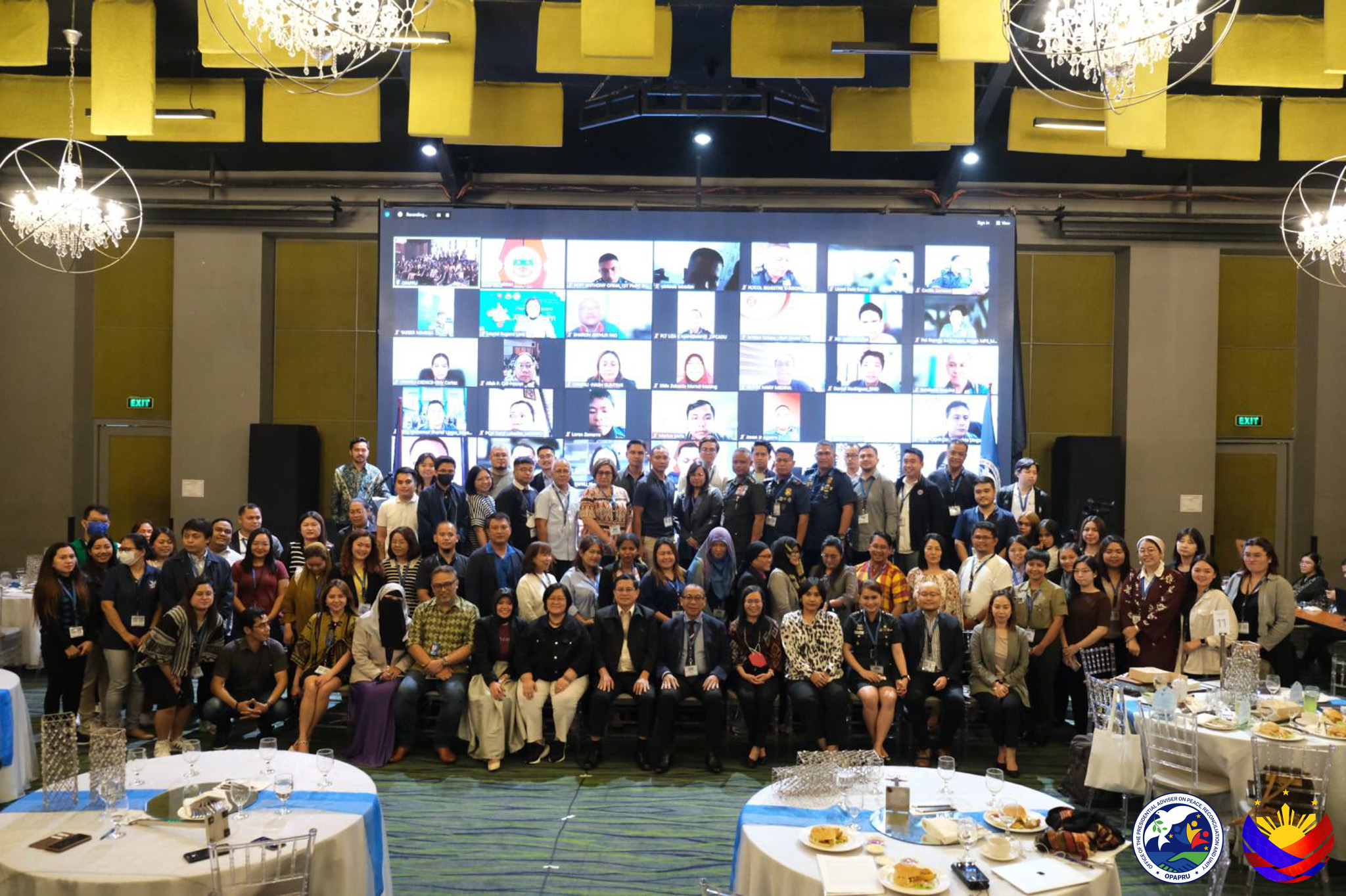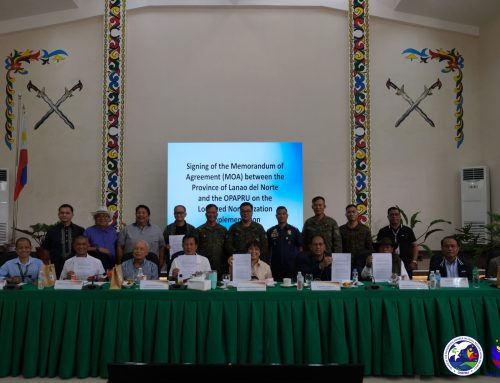PASIG CITY– Twelve research papers highlighting multi-stakeholder efforts to address the challenges of violent extremism and radicalism were presented during the two-day Peace Research Conference held from September 7 to 8, Friday, in this city.
The research conference, participated in by scholars, representatives from line agencies and international researchers, was spearheaded by the Office of the Presidential Adviser on Peace, Reconciliation and Unity (OPAPRU).
The conference, which was launched in 2021 and has become a yearly event during the celebration of National Peace Consciousness Month, was organized to broaden the constituency for peace and serve as a platform for knowledge co-creation and evidence-based conversation on peacebuilding, conflict, and security concerns.
The conference is also an opportunity for the OPAPRU to engage with other academics and researchers who can help in attaining the vision of a just and lasting peace for the nation and for all Filipinos.
On-the-ground experience
According to the Armed Forces of the Philippines (AFP) Chief of Staff, Gen. Romeo Brawner Jr., whose keynote message was read by his representative BGen. Arvin Lagamon, the country’s experience during the Marawi siege has provided invaluable lessons and stimulated deep conversations on how to build resiliency and strategies to counter violent extremism in the country.
“Today, as I speak on [the conference theme] ‘Building Resilient Communities: Preventing and Countering Violent Extremism and Radicalism,’ let us look back and learn from the narrative woven from the resilience and strength of all the people who are part of the story of the Battle of Marawi,” Brawner said.
“As philosopher George Santayana once stated, “Those who cannot remember the past are condemned to repeat it.” It is in this spirit that we gather here today, not just to remember but to learn, adapt, and forge ahead as one resilient community, one resilient nation,” he added.
According to Brawner, the 5-month-long battle of Marawi holds so much meaning for the men and women of the Armed Forces of the Philippines (AFP), as it tested their capabilities, left them with invaluable learnings, and most of all, became an affirmation of the steadfast commitment of Filipino soldiers to serve and protect their countrymen.
“The tale of Marawi is not woven from the threads of battles fought in the confines of its storied streets, but from the lives of people – those who led it, those who defended it, and those who reside in its embrace,” he added.
Towards a more resilient Philippines
In 2019, the Anti-Terrorism Council (ATC) unanimously voted to approve and adopt the National Action Plan on Preventing and Countering Violent Extremism (NAP P/CVE).
The NAP P/CVE is the comprehensive, harmonized, and synchronized national strategy of the government to prevent and counter violent extremism. It includes programs that address the political, economic, cultural, psychosocial, and religious factors of radicalization that lead to violent extremism.
“The rise of violent extremism and radicalization in recent years has led to the increasing number of armed and terrorist groups particularly in mindanao. This development has resulted in the outbreak of armed conflict in remote and hard-to-reach communities, displacing the island–region’s most vulnerable sectors,” OPAPRU Senior Usec. Isidro L. Purisima said.
Purisima added that the Philippine government has, over the years, intensified its efforts to address the challenges caused by violent extremism and radicalization.
“It [Philippine Government] has not only implemented initiatives to ensure the safety of our people, but also empower them to stand up against those who wish to bring unrest. There is also a need for us to convince those who wish to create un-peace that their cause is a losing proposition,” he added.
Peace education: Key to transforming mindsets
In his closing message, Presidential Peace Adviser Sec. Carlito G. Galvez Jr., who intently listened to the presentations of the research fellows, said that their studies will create new ideas that will help not just the OPAPRU but the government in creating sound policies to help address extremism, and fine tune the government’s transformation and normalization programs in the peace process.
“All sectors of society have a vital role to play in the peacebuilding and development process. Your papers will help spark new ideas and approaches, as we craft more responsive policies and programs that aim to prevent and address the challenges brought about by violent extremism,” Galvez said.
As presented, the NAP P/CVE’s main objective is to prevent radicalization leading to violent extremism through a whole-of-nation approach or convergence of the government, civil society organizations, religious sector and other key stakeholders.
This is envisioned to be achieved by: (1) Institutionalizing P/CVE strategies from the national down to the grassroots levels; (2) Involving the different stakeholders across the broadest spectrum of society in implementing P/CVE programs; (3) Applying a comprehensive and people-centered approach to address the different drivers of radicalization; (4) Ensuring that P/CVE strategies are inclusive and culture and-gender-sensitive, and; (5) Ensuring that P/CVE strategies uphold the rule of law, international rights law, and international humanitarian law.
“The OPAPRU is working closely with academic institutions so that we can use education for peace and sustainable development as an instrument to transform the mindsets of the youth so that they will not fall prey to the threats of violent extremism and radicalism, and help them realize that the way to sustainable development is through peace and vice versa,” Galvez said.
Galvez added that the OPAPRU under the Marcos administration is determined to help empower its partner-beneficiaries through peacebuilding measures, and consequently, uplift the lives of residents and usher economic progress to their areas to help build not only peaceful, but also inclusive and resilient communities. ###



































































































